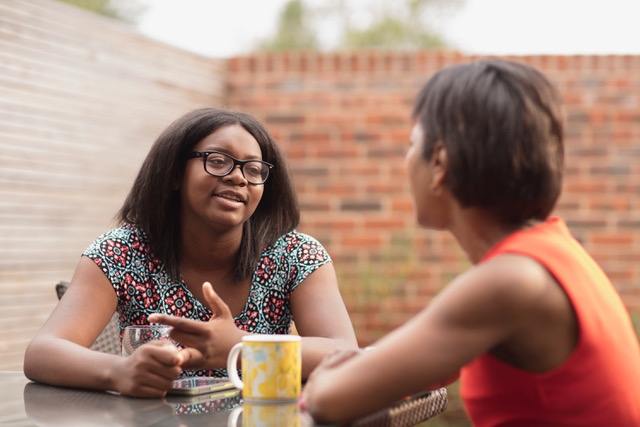The Future Is Bright, The Future Is Female
I am thrill to share this space with Charlotte Harding and Bex Bastable, two journalists living and working in Sussex and Hampshire with a passion for sharing stories and empowering the next generation of fearless females. To this end, the two set up Generation Tribe to inspire and empower teenage girls and young women. Both are the eldest of ‘sister tribes’ and want to use their elder-sibling skills in paving the way to help a wider community of girls.
Do check out the story behind Generation Tribe.
In today’s modern world we are all surrounded by images on social media of people living their best lives and it can make you feel a bit ‘less than’. We want to offer young people a place away from selfies and weight loss tips.
We think many young women struggle with self-esteem, confidence and anxiety, particularly around their futures. That’s why we wanted to create a space where teenagers can read stories of women who have been in their shoes but have gone out and created a life they love.
We think it’s important to show girls lots of examples of people who have succeeded in their careers and create a community where successful women are accessible and seen by the younger generation. This is the website that we wish we had had when we were growing up.
We feature career success stories of women who have been where our readers have, at a crossroads not knowing what lies ahead beyond school. There are stories from a digital compositor in visual effects (VFX) and animation working on films such as Harry Potter and Star Wars, a speech therapist, someone who worked a summer at Disney World Florida, a newspaper editor, X-Factor contestants band Four of Diamonds dancer who appeared on Strictly and many, many more.
As well as success stories, we feature relationship advice, budgeting tips and guides on living sustainably, whether it’s ethical and natural beauty products or lowering your carbon footprint.
Also, talking about mental health is really important to us. We have both shared our stories of dealing with our own mental health including anxiety and going to counselling. It is important to break down the taboos. And we have features from Childline looking at a number of issues from how to keep safe online to how to leave an unhealthy relationship.
We started using our own networking of women, but as the website has grown we have moved beyond this and are amazed with the amount of women who have reached out to us.
And while we are aware that no career is set in stone we also want to show young women and teenage girls that just because when you were at school you opted for one career doesn’t mean as you get older you have to stick with it. If you want to go down another career path that is completely fine.
We believe the future is bright, the future is female. So why don’t you Join our Tribe.
Twitter @Join_OurTribe
Facebook @GenerationTribe
Instagram @GenerationTribeUK









